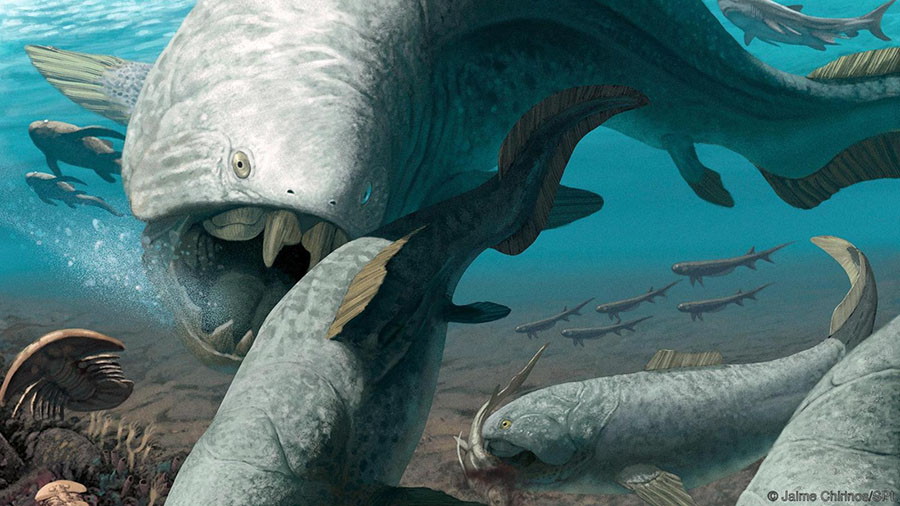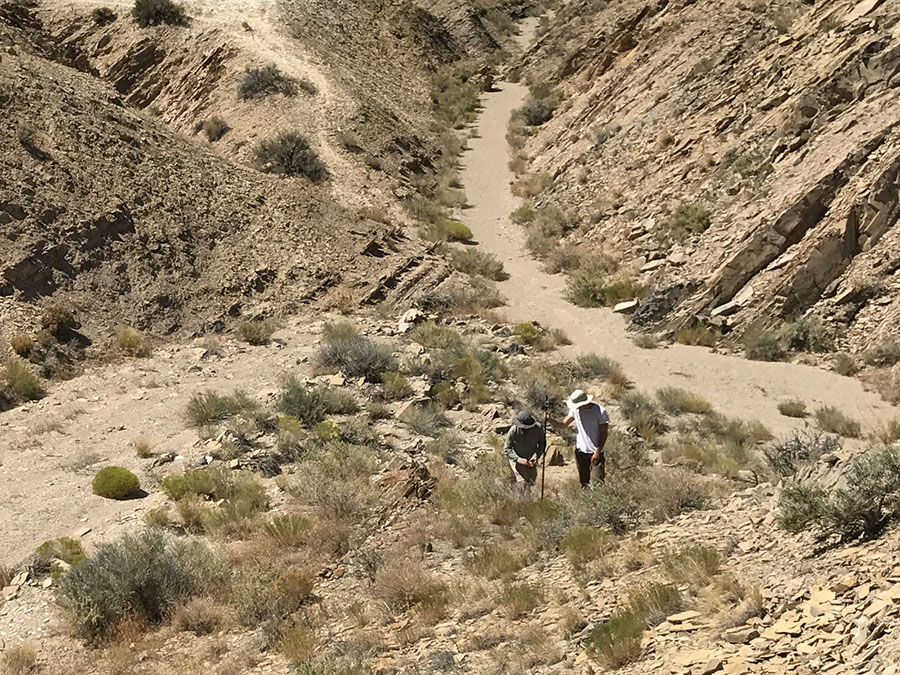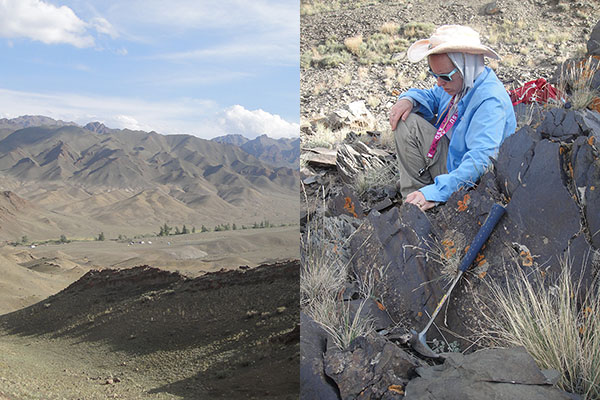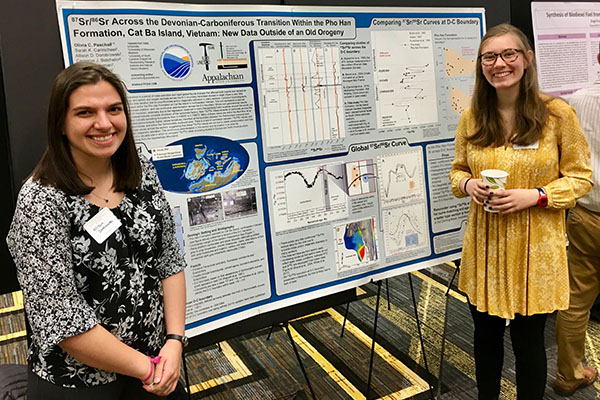BOONE, N.C. — Using a $5,000 grant awarded by The Paleontological Society, Appalachian State University’s Dr. Cole Edwards and his team of student researchers are getting their hands dirty exploring whether global anoxia — or the absence of oxygen — was a driving factor of the Late Devonian mass extinction.
“This biotic crisis is known as one of the ‘big five’ mass extinctions that impacted animal life over the past 541 million years, but the causes of this extinction event are not well understood,” said Edwards, assistant professor in Appalachian’s Department of Geological and Environmental Sciences.
He said, “A leading theory for the cause of this extinction is widespread anoxia based on carbon isotopic trends, which should be globally present if this was the kill mechanism.”
In the summer of 2017, Edwards and his student research assistants Daniel Govert, a senior geology major from Chapel Hill, and William Lamb, a junior geology major from Mooresville, traveled to Nevada and Utah, where Edwards said he and his team “sampled several sections (of rock) across the extinction interval.”
The team brought the samples back to the lab for processing, specifically looking for geochemical evidence — including both carbon and sulfur isotopic trends — of anoxia preserved in the rocks.
“These isotopic systems can provide indirect evidence for anoxia, so we are interested to see if this form of evidence is preserved in the rocks prior to or during the mass extinction interval in order to determine whether anoxia was the global killer,” Edwards said.
According to Edwards, preliminary results from the samples yield little evidence showing that anoxia was present across the extinction interval in these sections.
“This challenges the widely held view that anoxia was the global killer and requires a new model to explain the cause of this mass extinction,” he said. “Future work will address the possibility that a CO2 drawdown gradually cooled the climate that directly affected temperature-sensitive reef organisms (e.g. corals), possibly triggering a gradual global die-off.”
An international nonprofit organization devoted exclusively to the advancement of the science of paleontology
About the Department of Geological and Environmental Sciences
Located in Western North Carolina, Appalachian State University provides the perfect setting to study geological and environmental sciences. The Department of Geological and Environmental Sciences provides students with a solid foundation on which to prepare for graduate school or build successful careers as scientists, consultants and secondary education teachers. The department offers six degree options in geology and two degree options in environmental science. Learn more at https://earth.appstate.edu.
About the College of Arts and Sciences
The College of Arts and Sciences (CAS) at Appalachian State University is home to 17 academic departments, two centers and one residential college. These units span the humanities and the social, mathematical and natural sciences. CAS aims to develop a distinctive identity built upon our university's strengths, traditions and locations. The college’s values lie not only in service to the university and local community, but through inspiring, training, educating and sustaining the development of its students as global citizens. More than 6,800 student majors are enrolled in the college. As the college is also largely responsible for implementing App State’s general education curriculum, it is heavily involved in the education of all students at the university, including those pursuing majors in other colleges. Learn more at https://cas.appstate.edu.
About Appalachian State University
As a premier public institution, Appalachian State University prepares students to lead purposeful lives. App State is one of 17 campuses in the University of North Carolina System, with a national reputation for innovative teaching and opening access to a high-quality, cost-effective education. The university enrolls more than 21,000 students, has a low student-to-faculty ratio and offers more than 150 undergraduate and 80 graduate majors at its Boone and Hickory campuses and through App State Online. Learn more at https://www.appstate.edu.
What do you think?
Share your feedback on this story.







![How NCInnovation Is Rethinking Economic Development in North Carolina [faculty featured]](/_images/_posts/2026/02/rethinking-economic-development-600x400.jpg)








